
views
- Save at least 6 months of savings and look into the average living costs of the countries you’re interested in moving to so you’re well prepared.
- Look into countries with tourism relocation incentive programs that will pay you to move there. Contact your local embassy to get started on your transition.
- You’ll need a valid passport and visa to travel and enter your chosen country.
How much money do I need to start a new life abroad?

Stash away at least 6 months worth of savings. Before you make any big decisions, look into the average living costs in different countries, as well as the currency exchange rate. This way, you can be financially prepared before actually moving to a new place. Check here for a country-by-country comparison of cost of living, rent, groceries, and more: https://www.numbeo.com/cost-of-living/rankings_by_country.jsp. If your new home of choice has a higher cost of living than your home country, you may have to save up more money before making the move. Some countries, like Bermuda, Switzerland, and Norway, have a higher cost of living. For your own financial security, you might be better off looking into countries like Malaysia, Argentina, and Indonesia, which have a lower cost of living overall. For reference, the US dollar is very strong in countries like Colombia, Cambodia, India, Chile, Vietnam, and Costa Rica.
How do I start a new life abroad with no money?

Move to a place with a tourism relocation incentive program. Surprisingly, some countries will actually pay you to start a new life there. Some places, like Antikythera, Greece, want to boost their small population. Other places, like Chile, Mauritius, and Ireland, will pay you to start a business there. Contact your local embassy to see how you can get started on your transition. Lots of American cities offer relocation packages, too. Places like Lincoln, Kansas offer free property lots, while Tulsa, Oklahoma offers $10,000 to anyone willing to move there and work remotely. Double-check the eligibility requirements for these programs before you plan your move.
Where can I live in the world without a visa?

You’ll need a visa to live in most places. However, some countries have really simple visa requirements, which makes the moving process a lot simpler. Nations like Mexico, Costa Rica, and the Czech Republic have accessible visa options that let you live overseas long-term. Contact your local embassy to find an option that works for you.
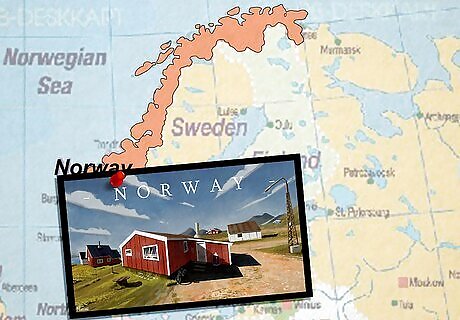
Svalbard, Norway has almost no visa requirements. Svalbard, while technically part of Norway, is separated from the rest of the continent, and is just below the North Pole. Because of this, the visa requirements are a lot more lax. However, you can’t move to Svalbard with just the clothes on your back—since most of the housing is owned by Norwegian employers, you’ll need a job in order to live in the region. To start job hunting in Svalbard, get in touch with different employers from Longyearbyen, or ask the Norwegian Labour and Welfare Administration for more information about getting a job in Norway.
What are some of the cheapest countries to live in?
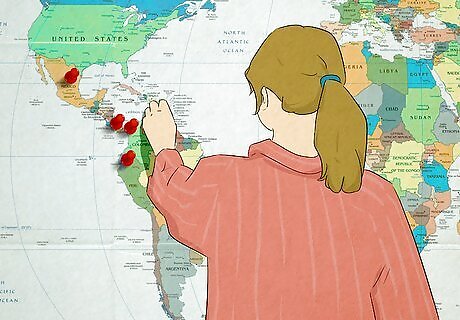
Costa Rica, Mexico, Panama, and Ecuador are affordable options in Central America. If you're looking for a fresh start, the monthly cost of living is as little as $1,615 in Costa Rica, $1,590 in Panama, $1,700 in Mexico, and $1,210 in Ecuador. If you don’t mind venturing further south, Columbia is also a viable option, with a monthly price tag as low as $1,030. It’s cheap for couples to live in a new country, too! A couple can live in Costa Rica, Mexico, and Columbia for $2,000 a month, and they can settle in Ecuador for $1,650.
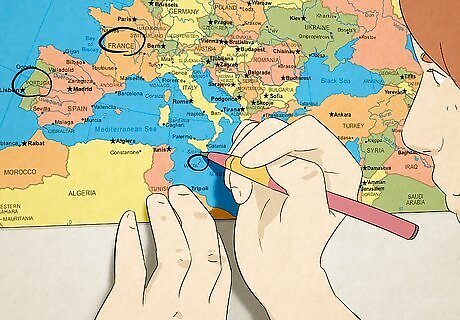
France, Portugal, and Malta are inexpensive European destinations. Believe it or not, Europe can be extremely affordable—it all depends on where you live. Places like Normandy, Brittany, Toulouse, Montpellier, Lorraine, Alsace, Bordeaux, Burgundy, and Aix-en-Provence are some affordable French towns and cities, while Lisbon, Porto, Alentejo, Beja, and Évora are some budget-friendly Portuguese options. The islands of Malta and Gozo (which are both part of Malta the country) are also great places to settle. You can live in France for slightly under $2,000 a month, or stay in Malta for under $2,500. Portugal has a monthly price tag of $2,020. You and a partner can settle in Portugal for about $2,500 each month, or relocate to France for $2,083. A couple can live in Malta for around $2,500.

Malaysia is a great option if you’d like to live in southeast Asia. This country is incredibly affordable; in fact, some people decide to live there full-time and vacation in their birth country instead. Solo travelers can comfortably live in Malaysia for around $1,705 each month, while a couple can stay for a little less than $2,000. Most people in Malaysia speak English, so you don’t need to worry about learning a new language. Cities like Kuala Lumpur and Penang are popular spots for expats. Keep in mind that the amount of money you earn in a foreign country might be lower than what you’d make in your origin country, unless you have a steady source of income from somewhere else.
What do I need to start over in a new country?
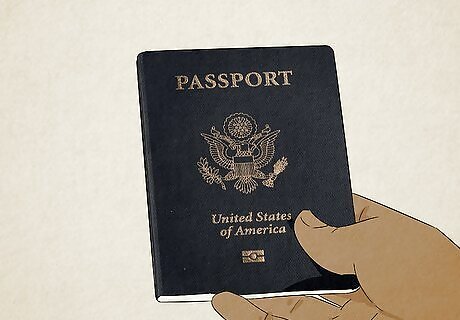
Get your passport. If you don’t have a passport, submit an application as soon as you can. Your passport needs to be valid for at least half a year past your departure date; if your current passport will expire soon, stop by your local embassy or consulate to get it renewed.
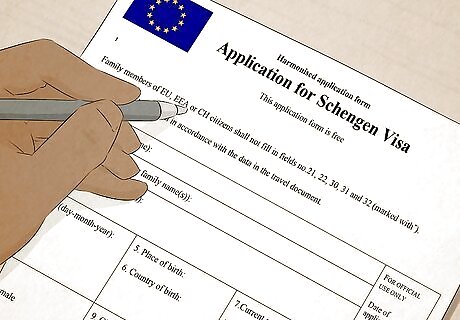
Apply for a visa so you can enter the country. Most countries require that you have some sort of visa, a legal document that lets you stay somewhere for a long period of time. Visit your destination country’s website or stop by their embassy to see what applications and paperwork you need to get started. Some countries have a really simple visa application process. For example, the Czech Republic has a long-term business visa, while South Korea has a teaching visa that lets you stay in the country as an English teacher. Before getting a long-term visa, you might need to have a certain amount of money saved in your bank account, or have a job opportunity in the works. Double-check with your embassy to make sure you meet all the necessary requirements. Ask your local embassy if the country in question has any long-term, permanent resident visas. Some countries, like Australia, have this option.

Rent an apartment or home after seeing it in person. It may be tempting to book your housing before you even step on the plane, but this isn’t a great idea. Online pictures and descriptions don’t always tell the full story. Instead, stay in a hotel or Airbnb when you first arrive, and visit potential homes and apartments in person. In-person touring gives you a feel for the neighborhood.
What else do I need to do before I move abroad?

Contact your bank and credit card companies. Call your bank to close your account, and check in with your creditors, too. Let them know that you’re moving overseas, so your account doesn’t get flagged or locked in the future.

Set up a credit card with no foreign fees. Your old cards might ring up extra fees after you settle in a new country. To be safe, sign up for a card that has no foreign transaction fees before your big move. Capital One Venture, Chase Sapphire, Capital One QuicksilverOne Cash Rewards, and Deserve EDU MasterCard are some good options.
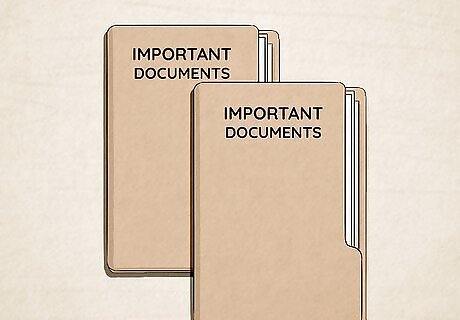
Make copies of important documents. Scan extra copies of your passport, driver’s license, and credit cards before you move. Give a set of these scans to a trusted friend or family member, and keep another set for yourself. If you ever get robbed, these scans can help prove who you are.

Apply for permanent residency and citizenship. As a permanent resident, you can stay in a country for a longer period of time. In certain countries, like the United States and Canada, you can apply for citizenship after being a permanent resident for a few years. The application processes for permanent residency and citizenship vary by country; for specific information, contact your local embassy for help. For example, to become a Canadian citizen, you need to already be a permanent resident, file all your taxes, reside in the country for 3 of the past 5 years, complete and pass a citizenship exam, and demonstrate your foreign language skills. Citizenship lets you stay in a country permanently without getting deported. Depending on the country, you might also be able to vote in elections and apply for federal jobs.
Will I need a new phone?

Yes, you’ll need an unlocked cell phone. While you can bring your old cell phone with you, you’ll have to pay serious roaming fees in the process. Instead, install a local SIM card into your unlocked phone after you’ve moved. This will make your phone bill a lot more affordable. You can unlock your current phone, or simply buy a new, unlocked phone.
How do I get a job in another country before I move?
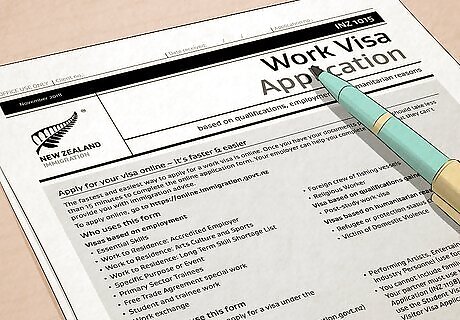
Get a work permit or work visa. Many countries let you apply for short-term work visas via an application. However, to get a long-term work visa, you’ll need to have a job opportunity already lined up. Then, your future employer will “sponsor” you and directly apply for your work visa. If you already have some type of visa, ask your local embassy if you still need to apply for a work permit visa. Ask your embassy if you can apply for a long-term visa after staying in the country on a short-term visa. The length of short- and long-term visas may depend on the country you’re moving to. For example, in the United States, temporary worker visas let you stay in the country for a set amount of time, but you could apply to become a lawful permanent resident to stay indefinitely.

Transfer through an international company. If you’re part of a larger, international company, the corporation might have business locations in international cities, like Shanghai, Singapore, or London. Ask a supervisor, manager, or HR employee about possible exchange programs—that could be a quick ticket into another country. Companies like Edelman, Deloitte, and UBS could be great places to start. You might have to work at the company for several years before you qualify for any exchange programs.

Learn a new language. If you’re moving to a non-English speaking country, try brushing up on your foreign language skills. You’ll definitely stand out more as an applicant if you can speak your new country’s native tongue.
How long does it take to settle in a new country?

It can take several years to adjust. Unfortunately, there’s no magic formula that will make your international move any easier. It’ll take time to really build your roots, especially as you adjust to culture shock, language barriers, and other new challenges. Just take your move one day at a time—things will get easier! You can meet lots of new people through networking sites like Meetup. Joining a faith community in a new country is another great way to make connections. However, if the faith community in your new home is different from your origin country, you might need to prepare yourself for cultural differences. Culture shock can be a big challenge at first, especially if you’re feeling homesick. Take some time to explore your new surroundings, but also do some of your favorite activities. Jamming out to your favorite band or taking part in your favorite hobbies might make the transition easier.
What are the advantages of moving to a new country?

You develop a stronger sense of identity. In several studies, researchers quizzed a variety of people about their sense of identity. Overall, people who lived abroad had a clearer, more defined sense of themselves than people who didn’t live abroad. Having a defined sense of self makes it easier to make clear, productive decisions about your future.

The cost of living may be cheaper. In your day-to-day life, extra costs like rent, insurance, healthcare, and other bills can take a toll on your financial stability. Thankfully, many foreign countries are very affordable; in fact, in some places, you can pay for rent, groceries, and medical bills for less than $2,200 each month. Healthcare is also way more affordable in many foreign countries, especially if you hail from the United States.
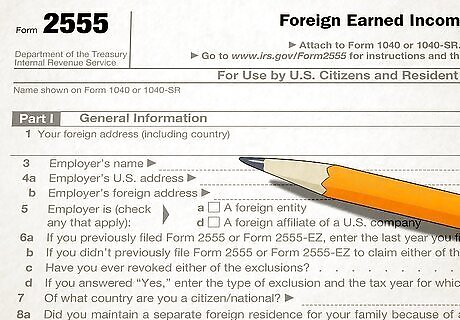
There are tax incentives if you’re from America. As an American citizen, you’ll still have to file taxes while living in a foreign country, but you won’t be saddled with extra fees. Instead, take advantage of the “Foreign Earned Income Exclusion” feature on your tax form, which can save you a lot of money in your payout. As an American, you might qualify for other tax deductions, like child care, housing, and foreign taxes.
What are the disadvantages of living in a foreign country?

You’re far from your family and friends. Chances are, you won’t get to see your loved ones nearly as often, and you might miss special occasions, like birthdays and holidays. While technology can help bridge this gap, it’s definitely not easy leaving your friends and relatives behind.

It’s hard to find a work-life balance. Once you’ve settled in a new country, you’ll probably want to go out and explore. However, you might feel a sense of guilt when you step away from your computer or workspace, especially if you rely on freelance work to pay the bills.

















Comments
0 comment